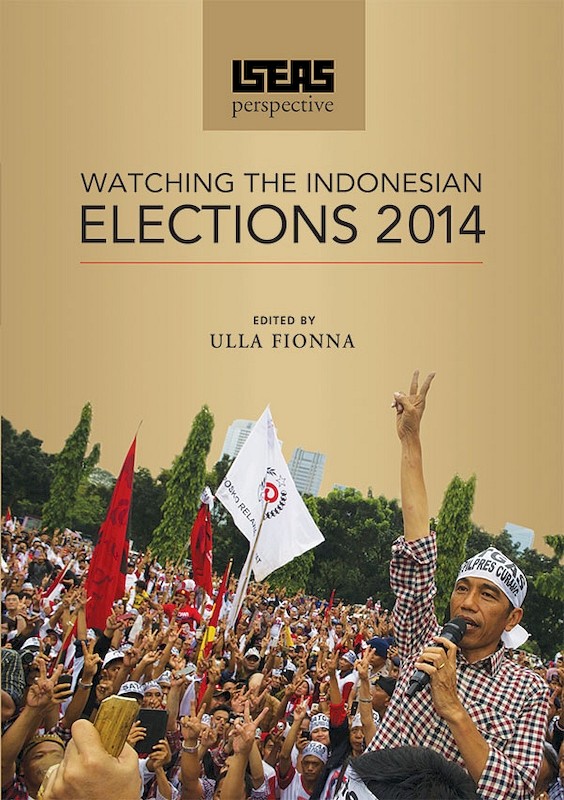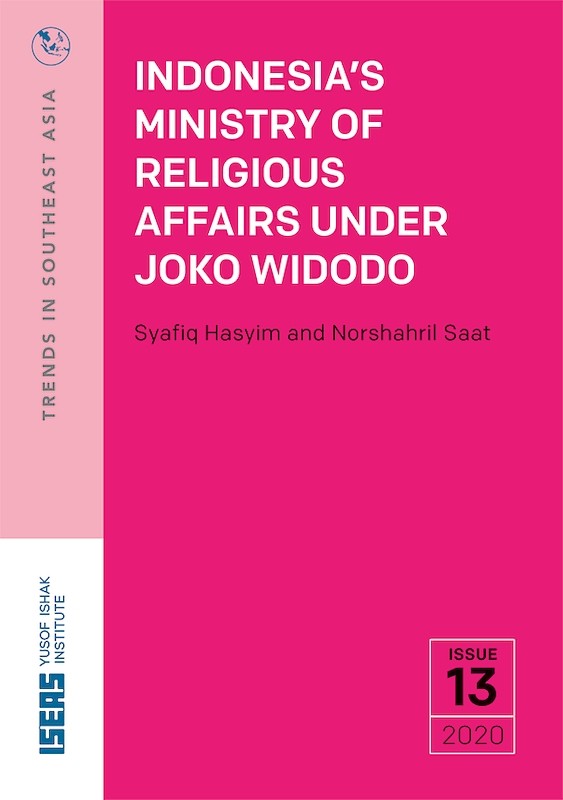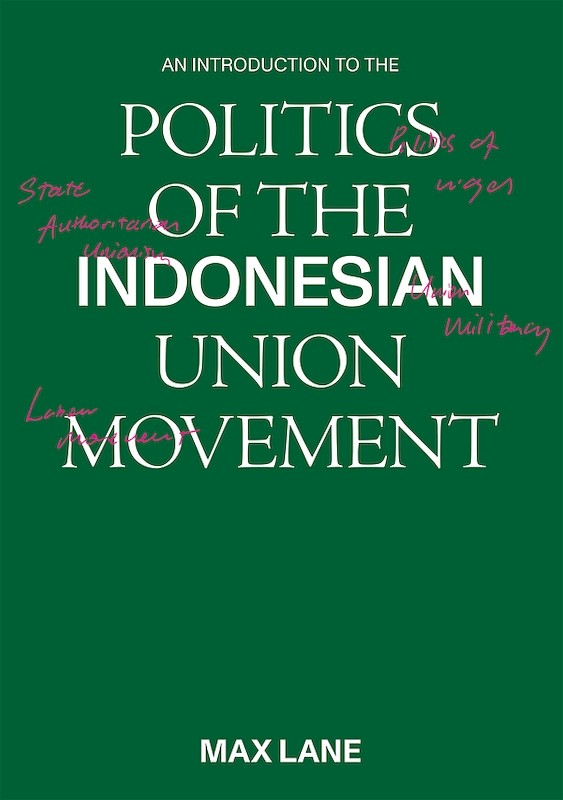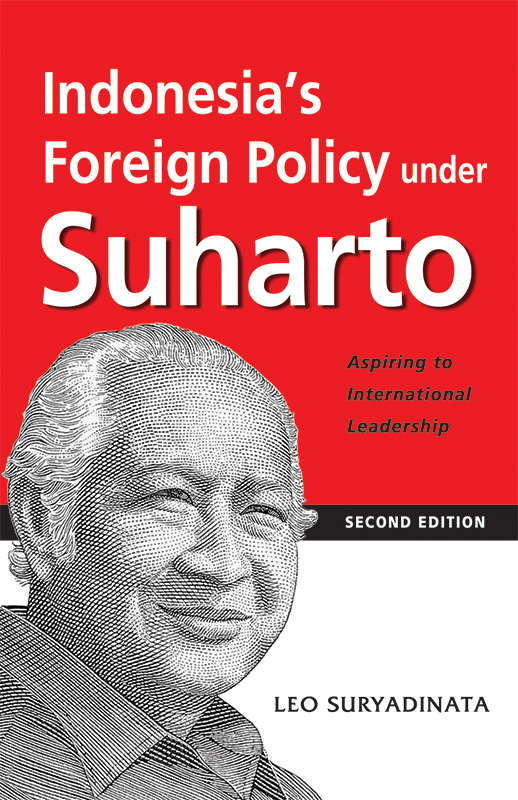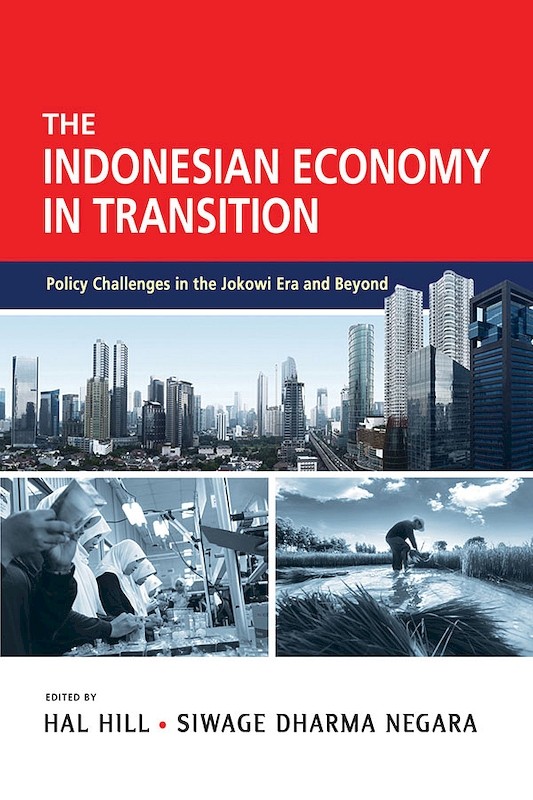Continuity and Change after Indonesia’s Reforms: Contributions to an Ongoing Assessment
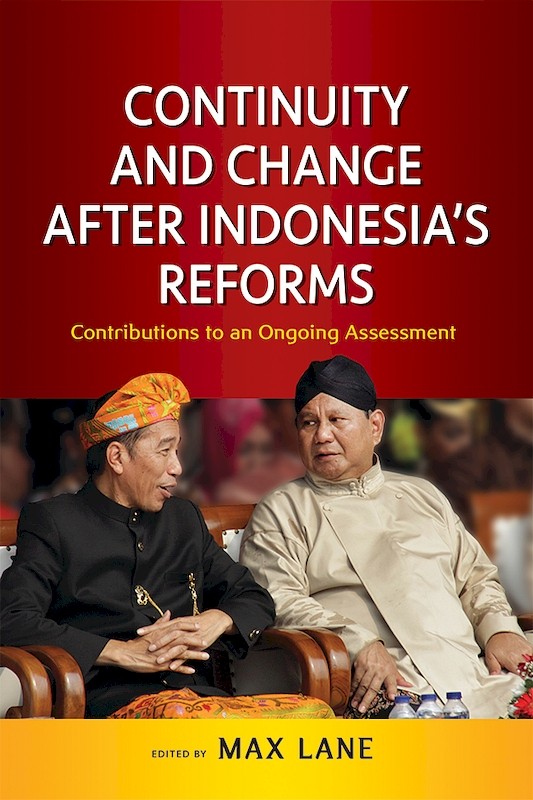
Max Lane, editor
Date of publication:
2019
Publisher:
ISEAS – Yusof Ishak Institute
Number of pages:
274
Code:
PIC267
Soft Cover
ISBN: 9789814843225
Reviews
Chong Wu Ling, JATI - Journal of Southeast Asian Studies, Vol. 24(2), December 2019, 191-194.
"This edited volume offers a collection of articles on Indonesian politics in the post-Soeharto era, with particular attention paid to the election of Jokowi in 2014 and the first term of his presidency (2014-2019), which have not been examined in detail in any other scholarly works. They are based on a workshop held at the ISEAS – Yusof Ishak Institute, Singapore in March 2018. The volume consists of an introduction by the editor that is followed by 10 contributions.
Overall, the chapters in this volume present a disturbing picture of Indonesia after the fall of Soeharto and the election of Jokowi as president: democratic without substantial reforms. The anti-reforms old elites continue to dominate Indonesian politics due to the weak and fragmented civil society. The recent appointment of Prabowo as defence minister makes any hope for significant positive reforms under Jokowi's second term even gloomier."
"This edited volume on politics in Indonesia comprises ten competently composed empirical chapters that in the main offer informed overviews of key developments in the country's evolving political landscape. Some chapters are relatively comprehensive in so far as they cover the period since Soeharto's 1998 resignation, while others focus more narrowly on Joko "Jokowi" Widodo's (first) presidency (2014-19). The papers on which this collection is based were first presented at a conference held in Singapore in March 2018, and the resulting volume was published in early 2019.
Taken together, these empirical chapters generate value by highlighting chief trends in Indonesia's democracy over the past twenty years, and thus they provide a useful guide for showing us where it might head in the next twenty or so."
About the publication
"This book addresses one of the most crucial questions in Southeast Asia: did the election in Indonesia in 2014 of a seemingly populist-oriented president alter the hegemony of the political and economic elites? Was it the end of the paradox that the basic social contradictions in the country’s substantial capitalist development were not reflected in organized politics by any independent representation of subordinated groups, in spite of democratization? Beyond simplified frameworks, grounded scholars have now come together to discuss whether and how a new Indonesian politics has evolved in a number of crucial fields. Their critical insights are a valuable contribution to the study of this question."
Professor Olle Törnquist, Department of Political Science, University of Oslo
"A most valuable book for understanding the underpinnings of Indonesian politics in 2019 and beyond. A great range of themes are included: political parties, ideologies, political Islam, leadership legitimacy, the political middle class, the politics of centre–local relations, corruption, limited foreign policy reform, Papua, and youth activism. The book has eleven chapters, mostly by Indonesia-based analysts, plus a couple of wise old hands. Max Lane’s overview chapter is excellent."
Professor David Reeve, School of Humanities and Languages, University of New South Wales
Contents
-
Continuity and Change after Indonesia’s Reforms: Contributions to an Ongoing Assessment
[Whole Publication, ISBN: 9789814843232], by Max Lane, editor -
Preliminary pages
-
2. Indonesian Parties Twenty Years On: Personalism and Professionalization amidst Dealignment, by Ulla Fionna, author
-
3. Ideologies of Joko Widodo and Indonesian Political Parties, by Mada Sukmajati, author
-
4. Political Islam Movements and Democracy in Indonesia: A Changing Landscape?, by Rizky Alif Alvian, author
-
5. Creating Leadership Legitimacy in Post-Reform Indonesia, by Wawan Mas'udi, author
-
6. The Political Middle Class in Post-Soeharto Era Indonesia, by Amalinda Savirani, author
-
7. The Politics of Centre–Local Relations in Contemporary Indonesia, by Cornelis Lay, author
-
8. The Roots and Actors of Corruption in the Political Realm, by Leo Agustino, author
-
9. Why Is It Really Hard To Move On? Explaining Indonesia’s Limited Foreign Policy Reform After Soeharto, by Ahmad Rizky Mardhatillah Umar, author
-
10. Papua under the Joko Widodo Presidency, by Richard Chauvel, author
-
11. Youth “Alienation” and New Radical Politics: Shifting Trajectories in Youth Activism, by Yatun Sastramidjaja, author
-
Index

